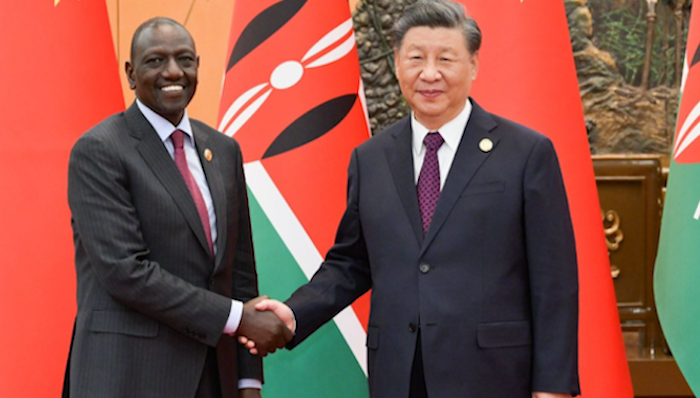
Kenya and two Chinese state firms will on Friday launch construction of a $1.5 billion highway expansion, marking Beijing’s return to major infrastructure development in the East African economy after years of reduced activity.
The project, divided into two phases, will be funded through a mix of debt and equity, a model gaining popularity after China’s traditional lending approach raised concerns over debt sustainability among borrowers.
“We don’t have any room to borrow any more money,” Kefa Seda, director general of the Public Private Partnerships directorate at Kenya’s finance ministry, told reporters ahead of the launch ceremony.
The project will upgrade a vital transport corridor linking the port of Mombasa with Kenya’s western region and neighbouring landlocked countries, including Uganda, through Nairobi.
After pouring billions into African infrastructure over the past decade, China sharply cut lending from around 2019 as concerns mounted over rising debt levels in countries such as Kenya. However, at a summit with African leaders last year, Beijing pledged $50 billion in credit and investments over three years as it seeks to reposition itself on the continent.
Kenya had earlier this year terminated a deal with a consortium led by France’s Vinci SA for the highway expansion. The new agreement was unveiled during a state visit by Kenya’s President William Ruto to Beijing in April.
Kenya is among Washington’s closest African allies, and the renewed cooperation with Beijing angered US President Donald Trump, prompting Ruto to publicly defend the strategy, saying Kenya needed to expand exports to markets such as China.
One phase of the new highway project, costing $863 million, will involve China Road and Bridge Corporation partnering with Kenya’s state pension fund NSSF to expand two existing stretches of a 139 kilometre single lane highway into four and six lane dual carriage roads, according to the Kenya National Highways Authority (KENHA).
In the second phase, Shandong Hi Speed Road and Bridge International, a subsidiary of China’s Shandong Hi Speed Group, will upgrade a 94 kilometre single lane road into a six lane carriageway at a cost of $678.56 million.
KENHA said both cost estimates include financing charges. Funding for both project segments will be structured as 75 percent debt and 25 percent equity, with NSSF providing 45 percent of the equity contribution in the phase where it is a partner.
Faridah Abdulkadiri



